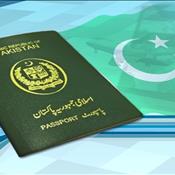.webp)
As the Kingdom of Saudi Arabia continues its ambitious Vision 2030 program, attracting foreign talent remains a key priority across various sectors.1 For individuals seeking employment opportunities in this dynamic and evolving landscape in 2025, understanding the intricacies of the Saudi Arabia work visa process is paramount. This comprehensive article aims to provide an in-depth guide, covering eligibility criteria, different types of work visas, required documentation, the step-by-step application process, and essential considerations for a smooth transition to working in Saudi Arabia.
1. Eligibility Criteria for a Saudi Arabia Work Visa in 2025
To be eligible for a Saudi Arabia work visa in 2025, foreign nationals generally need to meet the following criteria:
- Valid Job Offer and Employment Contract: The cornerstone of a work visa application is a confirmed job offer from a registered Saudi employer. This offer must be formalized through a signed employment contract detailing the job title, responsibilities, salary, benefits, and duration of employment. The contract often needs to be attested by the Saudi Chamber of Commerce and the Saudi Ministry of Foreign Affairs (MOFA).
- Sponsorship (Kafala System): Saudi Arabia operates under the Kafala (sponsorship) system, where a Saudi employer acts as your sponsor (Kafeel).2 The employer is responsible for initiating the work visa application on your behalf and will play a significant role throughout your employment and residency in the Kingdom.
- Valid Passport: Your passport must have a validity of at least six months from your intended date of entry into Saudi Arabia and should contain at least two blank visa pages for stamping.3
- Educational and Professional Qualifications: Depending on the job role, you will likely need to provide certified copies of your academic degrees, diplomas, and professional certifications.4 These documents often require attestation from relevant authorities in your home country and the Saudi Arabian Cultural Mission in your country.5
- Medical Fitness: All work visa applicants must undergo a mandatory medical examination at a clinic or hospital approved by the Gulf Approved Medical Centers Association (GAMCA) in their home country.6 The medical report confirms that you are free from any contagious diseases and are medically fit to work.
- Police Clearance Certificate (PCC): A Police Clearance Certificate (or a similar document indicating no criminal record) issued by the relevant authorities in your home country may be required, especially for certain professions or at the employer's request.7 The PCC usually has a validity period (e.g., within the last six months).8
- Age Requirements: While general age limits might apply (e.g., between 21 to 60 years, with potential variations based on the profession and nationality), specific age criteria should be confirmed with the Saudi embassy or consulate.
2. Types of Work Visas in Saudi Arabia in 2025
Saudi Arabia offers different categories of visas for employment purposes:9
- Employment Visa (Work Visa/Iqama Visa): This is the most common type of visa for foreign nationals seeking long-term employment in Saudi Arabia. It is typically valid for one year initially and is renewable annually, tied to the duration of your employment contract. Upon arrival, the employer will facilitate the issuance of your Iqama, which serves as your residence permit and work permit combined.10
- Temporary Work Visit Visa (TWVV): Introduced in recent years, this multiple-entry visa is designed for short-term work assignments, projects, or specialized tasks.11 It is typically valid for one year, allowing stays of up to 90 days per entry. Employers can obtain a quota for this type of visa to sponsor foreign workers for specific short-term needs.
- Business Visit Visa: While not strictly a "work visa" for long-term employment, this visa allows individuals to enter Saudi Arabia for business-related activities such as meetings, conferences, and contract negotiations. It does not permit direct employment with a Saudi company. It's crucial to note that recent regulations might have modified the issuance of commercial and work visit visas, so confirming the latest rules with the Saudi embassy is essential.
- Premium Residency Visa (Saudi Green Card): Launched in 2019, this program offers two options (permanent and renewable residency) for high-value expatriates, allowing them to live, work, and own property in Saudi Arabia without requiring a sponsor.12 Eligibility criteria are stringent and involve significant financial capacity and specific professional qualifications.
This article primarily focuses on the Employment Visa (Work Visa/Iqama Visa), as it is the standard pathway for individuals seeking long-term employment in Saudi Arabia.
3. Step-by-Step Application Process for a Saudi Arabia Work Visa in May 2025
The process of obtaining a Saudi Arabian work visa generally involves two main phases: actions taken by the employer in Saudi Arabia and actions taken by the employee in their home country.
Phase 1: Employer's Responsibilities in Saudi Arabia
- Obtain a Block Visa (Visa Authorization): The sponsoring Saudi employer must first apply for a "block visa" or visa authorization from the Saudi Ministry of Human Resources and Social Development (HRSD). This application outlines the number of foreign workers they are permitted to hire for specific job roles. Requirements for obtaining a block visa typically include the employer's valid commercial registration, labor license, and approval of the employee quota.13
- Apply for an Electronic Work Visa: Once the block visa is approved, the employer applies for an electronic work visa through the online portal of the Ministry of Foreign Affairs (MOFA) or the Ministry of Interior. This application will include details of the prospective employee, such as their name, nationality, passport information, occupation, and qualifications, along with details of the job contract.
- Visa Referral Note (Visa Authorization Number): Upon approval of the electronic work visa application, the MOFA will issue a visa authorization number (sometimes referred to as a visa referral note or "Tafwid").14 The employer will then provide this number and a copy of the visa to the prospective employee.
Phase 2: Employee's Responsibilities in Their Home Country
- Gather Required Documents: Upon receiving the visa authorization number and the job offer, the employee needs to gather all the necessary documents for the visa application.15 These typically include:
- Original passport valid for at least six months with two blank pages.16
- Completed visa application form (available from the Saudi embassy/consulate or online).17
- Recent passport-sized photographs (as per the specified requirements, usually with a white background).18
- The original visa authorization note or a copy provided by the employer.
- Copy of the signed employment contract (in Arabic and English, often attested).19
- Attested educational and professional certificates, authenticated by the relevant authorities in your home country and the Saudi Arabian Cultural Mission.20
- Original medical report from a GAMCA-approved medical center.
- Police Clearance Certificate (if required).
- Proof of online payment of the visa fee through the Enjazit website (an online platform for visa services).21
- Other supporting documents as requested by the Saudi embassy/consulate.
Medical Examination at a GAMCA-Approved Center:
- The applicant must undergo a medical examination at a GAMCA-approved medical center in their home country.22 The center will conduct various tests (blood tests for HIV, Hepatitis B and C, malaria, chest X-ray for tuberculosis, etc.) and issue a medical report. This report is a mandatory requirement for the visa application.
- Document Attestation: Educational and professional certificates often need to be attested by several authorities, including a notary public, the Ministry of Foreign Affairs in your home country, and finally, the Saudi Arabian Cultural Mission in your country.23 The Saudi embassy might also require attestation of other documents like the employment contract.
- Visa Application Submission: Once all documents are ready, the applicant needs to submit the visa application in person at the Saudi embassy or consulate in their home country. This usually involves completing the application form accurately, providing all required documents, and paying the visa fee.24 Some embassies might require an interview as part of the process.
- Visa Stamping: If the application is approved, the Saudi embassy/consulate will stamp the work visa onto your passport.25 The processing time for visa stamping can vary but typically takes a few days to a week.
Phase 3: Post-Arrival in Saudi Arabia
- Iqama (Residence Permit) Issuance: Upon arrival in Saudi Arabia, your employer is responsible for initiating the process of obtaining your Iqama (residence permit).26 This must be done within 90 days of your entry. The required documents for Iqama issuance typically include your passport with the work visa, entry visa, medical examination report (conducted in your home country), your employer's documents, passport-sized photographs, and payment of the applicable fees.27 You will also need to undergo biometric registration (fingerprints and photograph) at the designated centers.28
- Medical Insurance: Employers in Saudi Arabia are generally required to provide medical insurance for their foreign employees.
- Opening a Bank Account: Having an Iqama is usually necessary to open a bank account in Saudi Arabia, which is essential for receiving your salary
- Registration with Local Authorities: Your employer will typically assist with any necessary registration with local authorities.
4. Required Documents in Detail
To reiterate, here's a more detailed list of documents typically required for a Saudi Arabia work visa in 2025:
Documents Required from the Employee:
- Original Passport: Valid for at least six months beyond the intended stay, with at least two blank visa pages.31
- Visa Application Form: Duly completed and signed.
- Passport-Sized Photographs: Recent color photographs with a white background, adhering to specific size and format guidelines.32
- Visa Authorization Note (or copy): Issued by the Saudi MOFA.
- Copy of Employment Contract: Signed by both the employee and the employer, often attested.33
- Educational and Professional Certificates: Certified and attested by relevant authorities in your home country and the Saudi Arabian Cultural Mission.34 This may include degree certificates, diplomas, transcripts, and professional licenses.35
- Medical Report: Original report from a GAMCA-approved medical center.
- Police Clearance Certificate (PCC): Issued by the relevant authorities in your home country, if required.36
- Proof of Visa Fee Payment: Receipt of online payment through the Enjazit platform.37
- Other Documents: The Saudi embassy/consulate might request additional documents based on your nationality or the specific job role.
Documents Typically Provided by the Employer:
- Copy of the employer's Commercial Registration (CR) and Labor License.
- Original Letter of Sponsorship (invitation letter) addressed to the Saudi embassy/consulate, certified by the Saudi Chamber of Commerce and the MOFA.38 This letter usually includes the block visa number, date, job position, and the employee's name.39
- Copy of the Block Visa.
5. Processing Times and Fees
- Block Visa Approval: The time taken for the Saudi Ministry of HRSD to approve the block visa application can vary depending on the sector, the number of visas requested, and the efficiency of the processing authorities. It can range from a few weeks to a couple of months.
- Electronic Work Visa Approval: Once the block visa is in place, the electronic work visa application through MOFA usually takes a shorter time, potentially a week or two.
- Visa Stamping at the Embassy/Consulate: The processing time for stamping the visa on your passport at the Saudi embassy or consulate in your home country typically ranges from a few days to a week, provided all documents are in order.40
- Iqama Issuance: After arrival in Saudi Arabia, the process of obtaining your Iqama can take several weeks, depending on the employer's efficiency and the procedures of the Ministry of Interior.
Visa Fees:
The fees for a Saudi Arabian work visa can vary based on the type of visa, the duration of stay, and your nationality. Typically, there is a fee for the block visa (paid by the employer) and a visa application fee paid by the employee during the stamping process. Specific and up-to-date fee information should be obtained from the Saudi embassy or consulate in your country or through the Enjazit platform. Employers are usually responsible for the Iqama issuance and renewal fees for their foreign employees.41
6. Important Considerations for May 2025
- Saudization (Nitaqat) Program: Saudi Arabia continues to implement its Saudization program, which aims to increase the employment of Saudi nationals in various sectors.42 This program can influence the availability of certain job roles for foreign workers and may impose specific requirements on employers regarding the percentage of Saudi employees they must hire.43
- Professional Verification Scheme: Introduced in recent years, this scheme requires foreign nationals working in certain technical fields (currently including some Indian, Pakistani, and Bangladeshi nationals) to pass an exam to verify their qualifications before receiving a work visa.44 It's essential to check if your profession falls under this scheme and prepare accordingly.
- Online Platforms: The Saudi government is increasingly utilizing online platforms like Enjazit and the Absher portal for various visa and residency-related services.45 Familiarizing yourself with these platforms can be beneficial.
- Cultural Sensitivity: Understanding and respecting the local culture and customs in Saudi Arabia is crucial for a positive working and living experience.
- Dependents: If you plan to bring your family members to Saudi Arabia, they will need to apply for separate dependent visas (family visit visas initially, followed by resident permits linked to your Iqama). The requirements and procedures for dependent visas are different from work visas.
7. Seeking Assistance
Navigating the Saudi Arabia work visa process can be complex. It is advisable to:
- Maintain close communication with your sponsoring employer: They should guide you through the necessary steps and provide the required documentation from their end.
- Consult the official website of the Saudi Ministry of Foreign Affairs (www.mofa.gov.sa/en): This website provides general information on visa regulations.46
- Contact the Saudi embassy or consulate in your home country: They are the primary authority for processing visa applications and can provide the most accurate and up-to-date information regarding requirements and procedures specific to your nationality.
- Consider utilizing authorized visa service providers: These agencies can assist with the application process, document preparation, and liaison with the embassy, although they typically charge a service fee.
Conclusion
Obtaining a Saudi Arabia work visa in 2025 requires a thorough understanding of the eligibility criteria, the different stages of the application process, and the necessary documentation. By securing a legitimate job offer, working closely with your sponsoring employer, and diligently following the guidelines provided by the Saudi authorities, you can navigate this process successfully and embark on your professional journey in the Kingdom.48 Remember to stay informed about the latest regulations and seek official guidance to ensure a smooth and compliant visa application experience.
;More Travel News
-
 08-Jun-2025Best Travel Agencies in Pakistan for Umrah
08-Jun-2025Best Travel Agencies in Pakistan for Umrah -
 27-Feb-2020Due to Coronavirus Saudi Govt Banned Umrah Temporarily
27-Feb-2020Due to Coronavirus Saudi Govt Banned Umrah Temporarily -
 08-Apr-2025Saudi Arabia Imposes Travel Ban on Pakistan, India, and 12 Other Nations Amid Hajj Season: New KSA Visa Policy Takes Effect April 13, 2025
08-Apr-2025Saudi Arabia Imposes Travel Ban on Pakistan, India, and 12 Other Nations Amid Hajj Season: New KSA Visa Policy Takes Effect April 13, 2025 -
 11-Nov-2021E Visa Countries List of Pakistani Passport 2021
11-Nov-2021E Visa Countries List of Pakistani Passport 2021 -
 01-Dec-2021List of Vaccines Approved and Disapproved by Saudi Arabia
01-Dec-2021List of Vaccines Approved and Disapproved by Saudi Arabia -
 07-Sep-2025Umrah Packages for Women: How Umrah for Ladies Differs from Umrah for Men
07-Sep-2025Umrah Packages for Women: How Umrah for Ladies Differs from Umrah for Men -
 30-Jun-2021Khanpur dam is best place to visit in hot summer
30-Jun-2021Khanpur dam is best place to visit in hot summer -
 04-Feb-2026New Facilities for Umrah Pilgrims in Makkah
04-Feb-2026New Facilities for Umrah Pilgrims in Makkah -
 27-Jul-2025Heartbreaking Incident Claims Lives of Pakistani Umrah Pilgrims
27-Jul-2025Heartbreaking Incident Claims Lives of Pakistani Umrah Pilgrims -
 27-Mar-2020How to Protect ourselves from Coronavirus During Traveling
27-Mar-2020How to Protect ourselves from Coronavirus During Traveling -
 09-May-2025Important Advisory for Pakistan Hajj Pilgrims: Verify Approved Private Hajj Operators Before Booking
09-May-2025Important Advisory for Pakistan Hajj Pilgrims: Verify Approved Private Hajj Operators Before Booking -
 04-Mar-2020Due to Coronavirus Saudi Arabia bans its residents from Umrah
04-Mar-2020Due to Coronavirus Saudi Arabia bans its residents from Umrah
